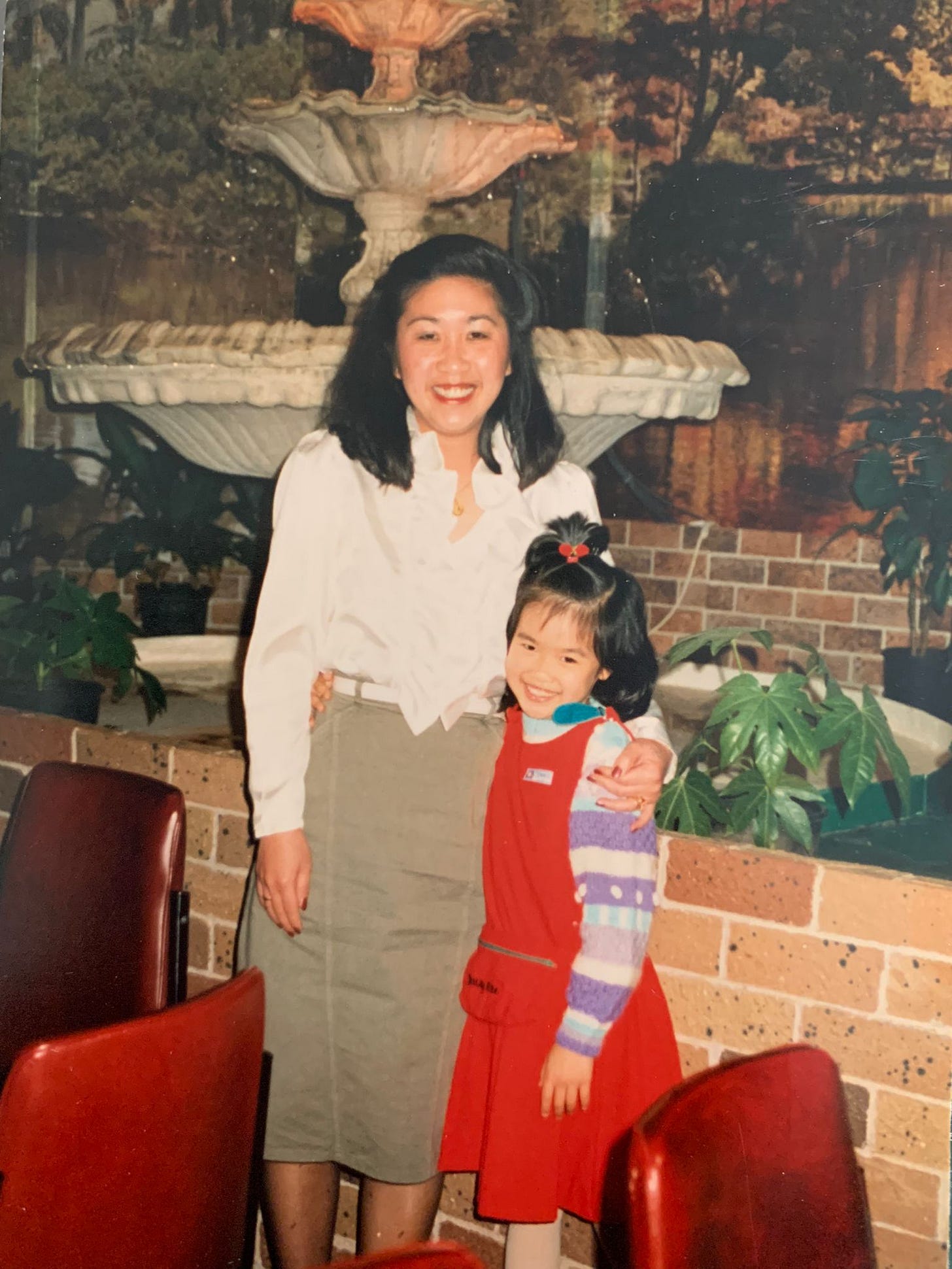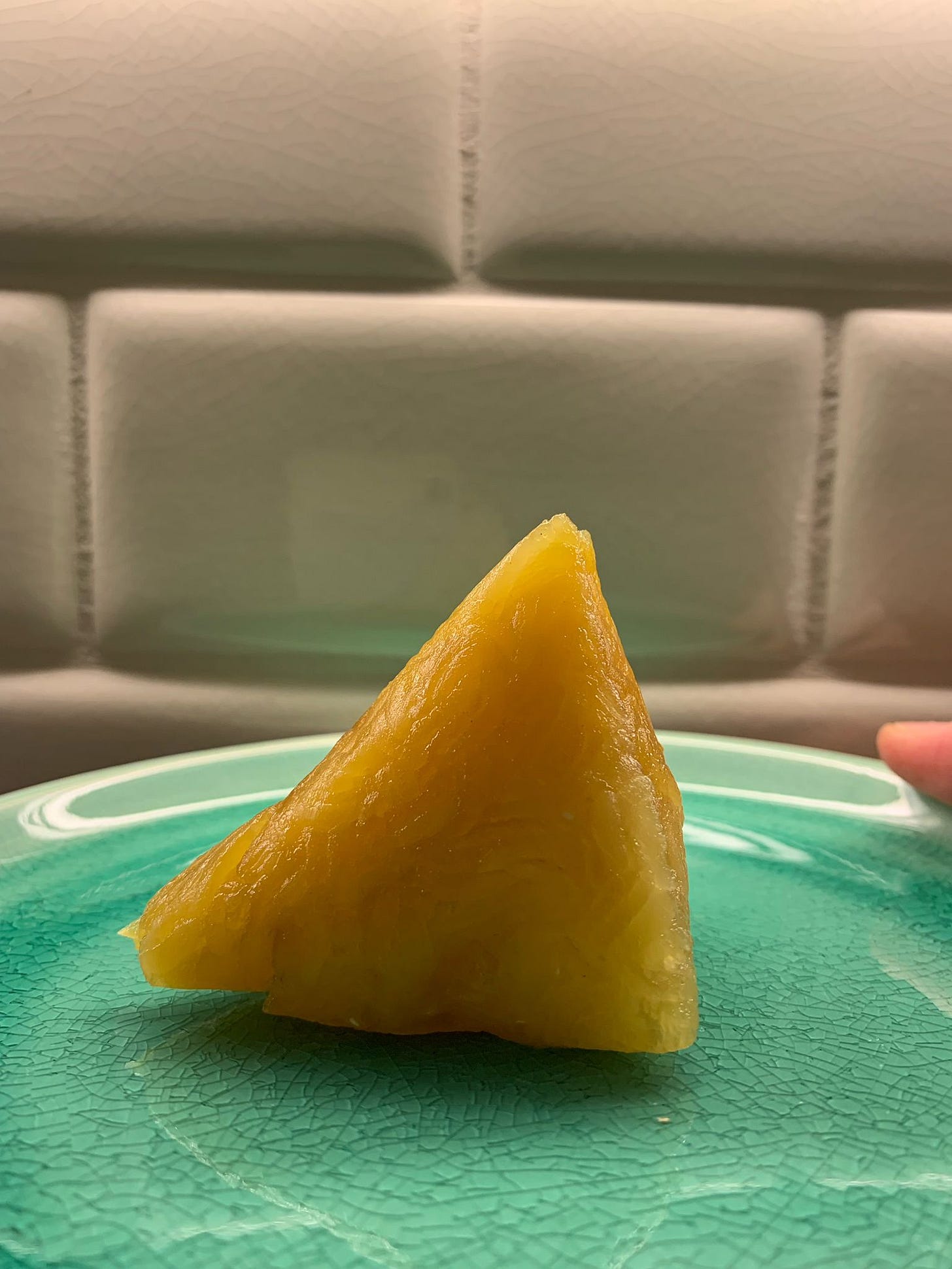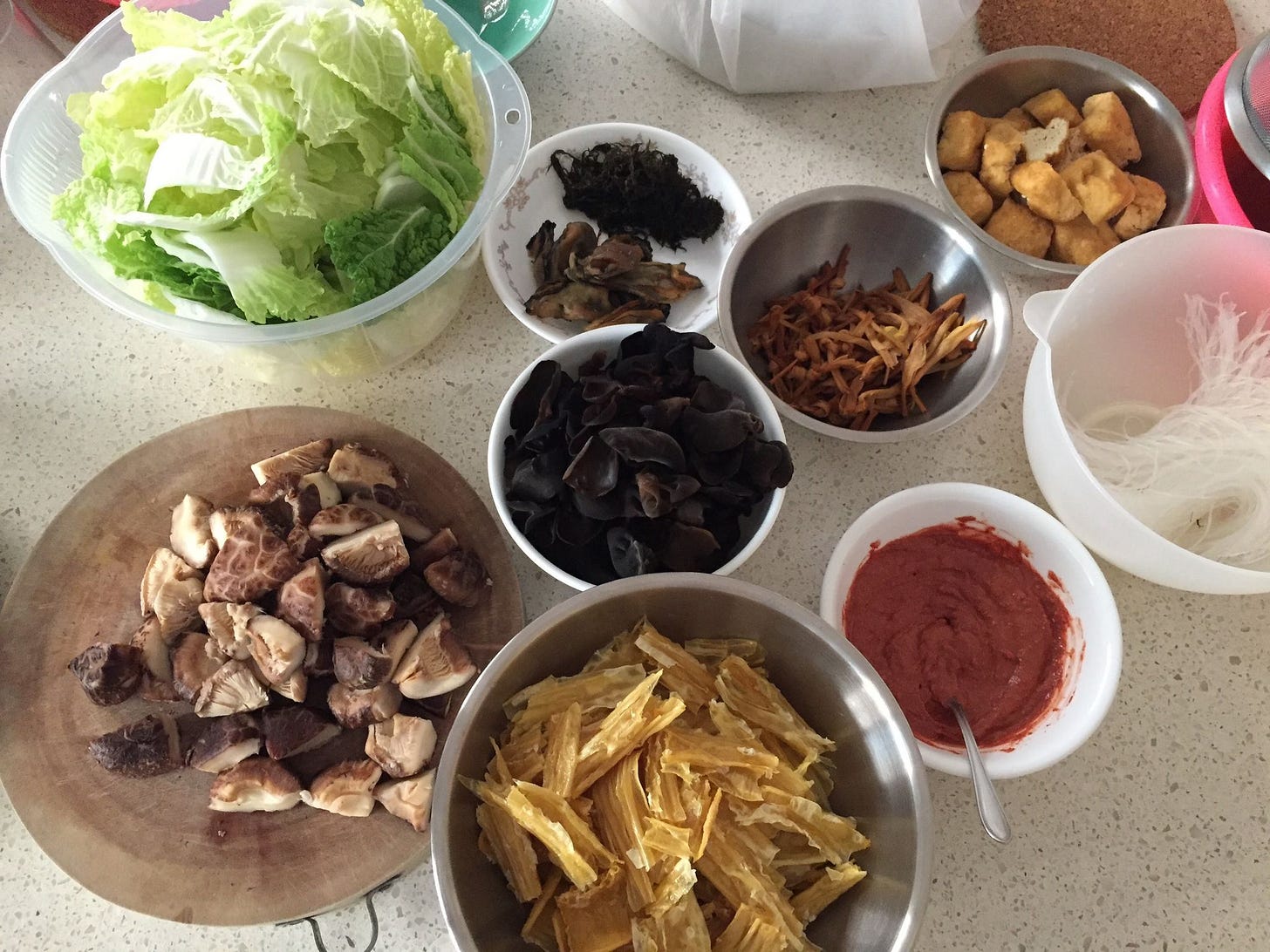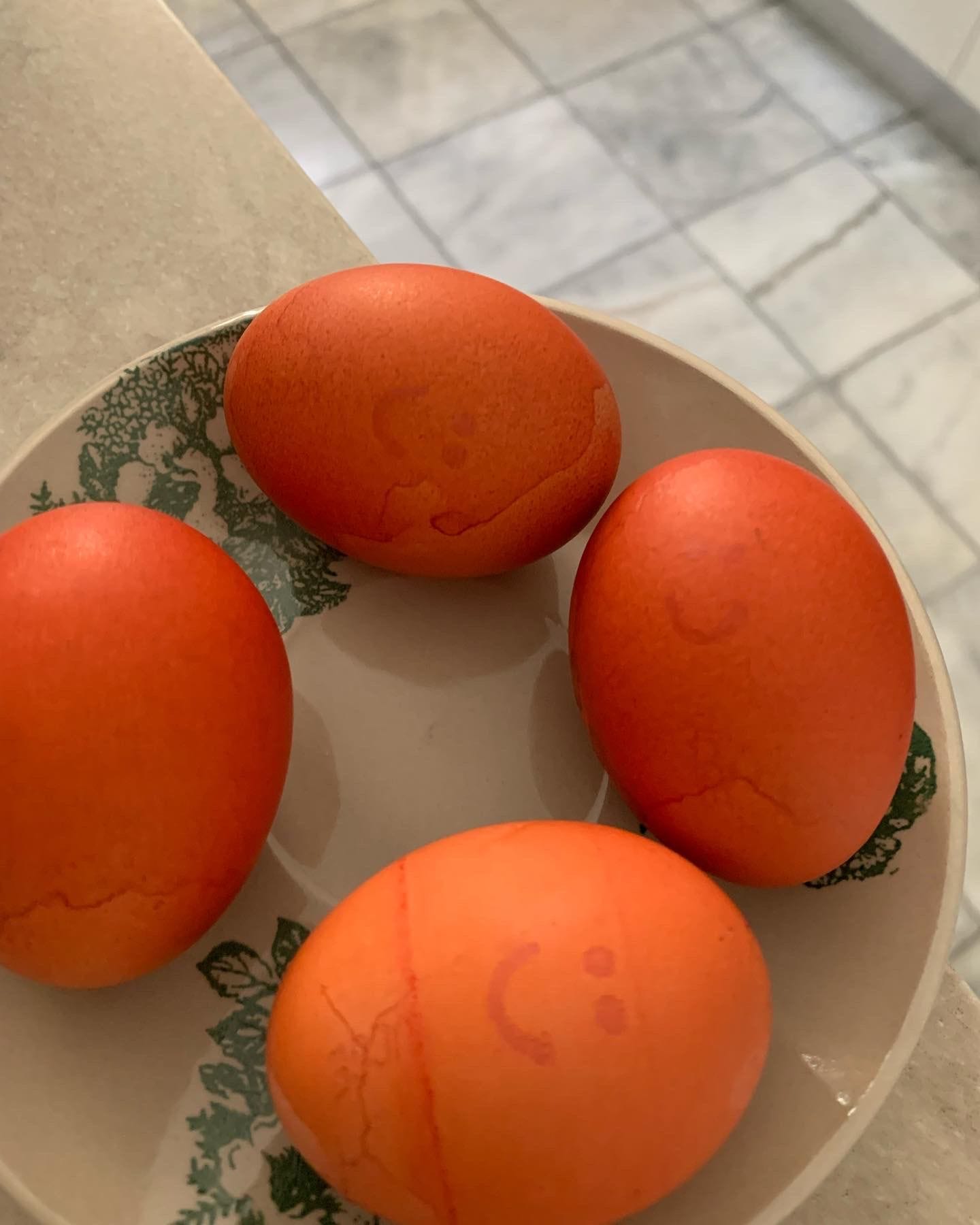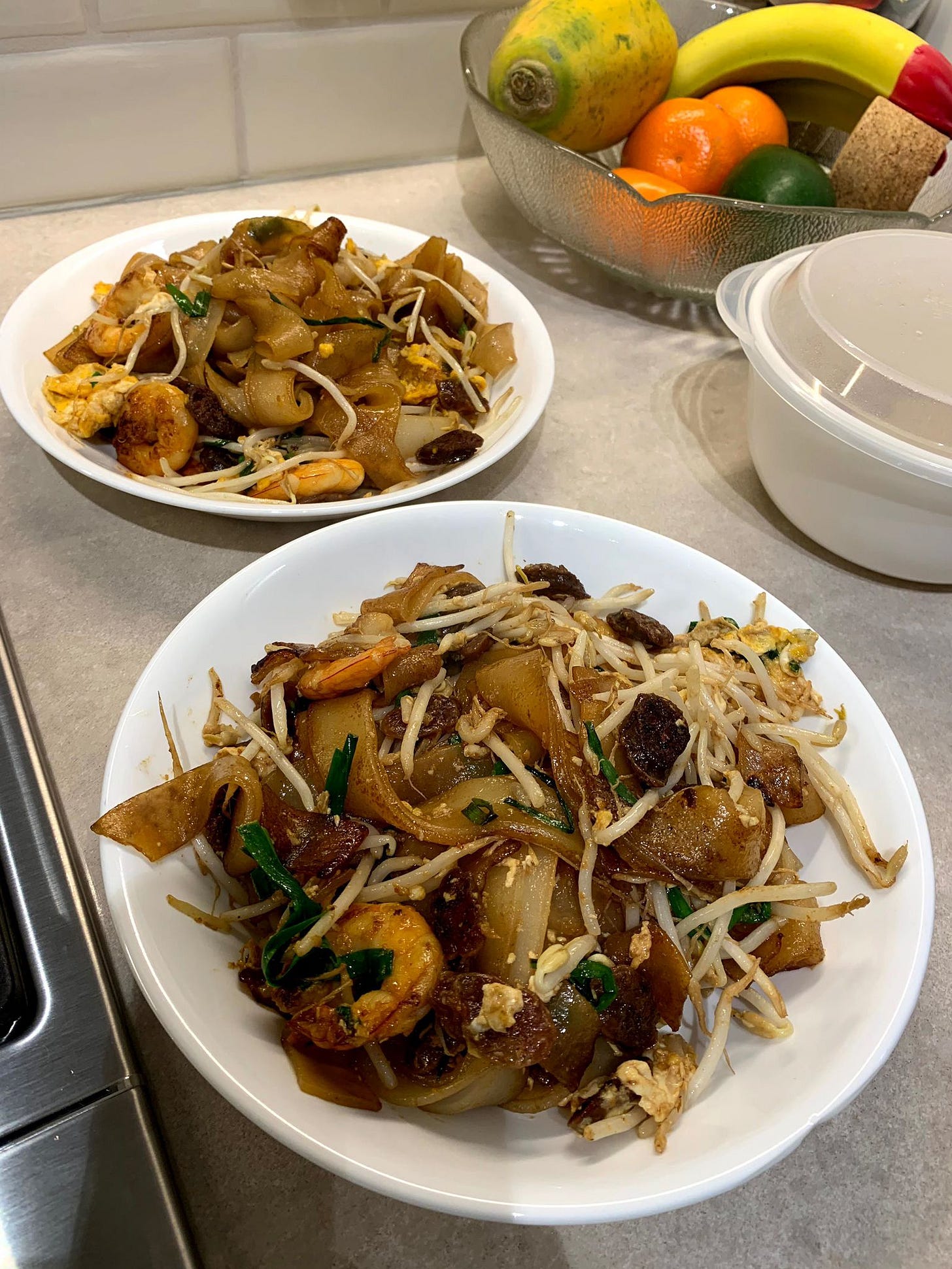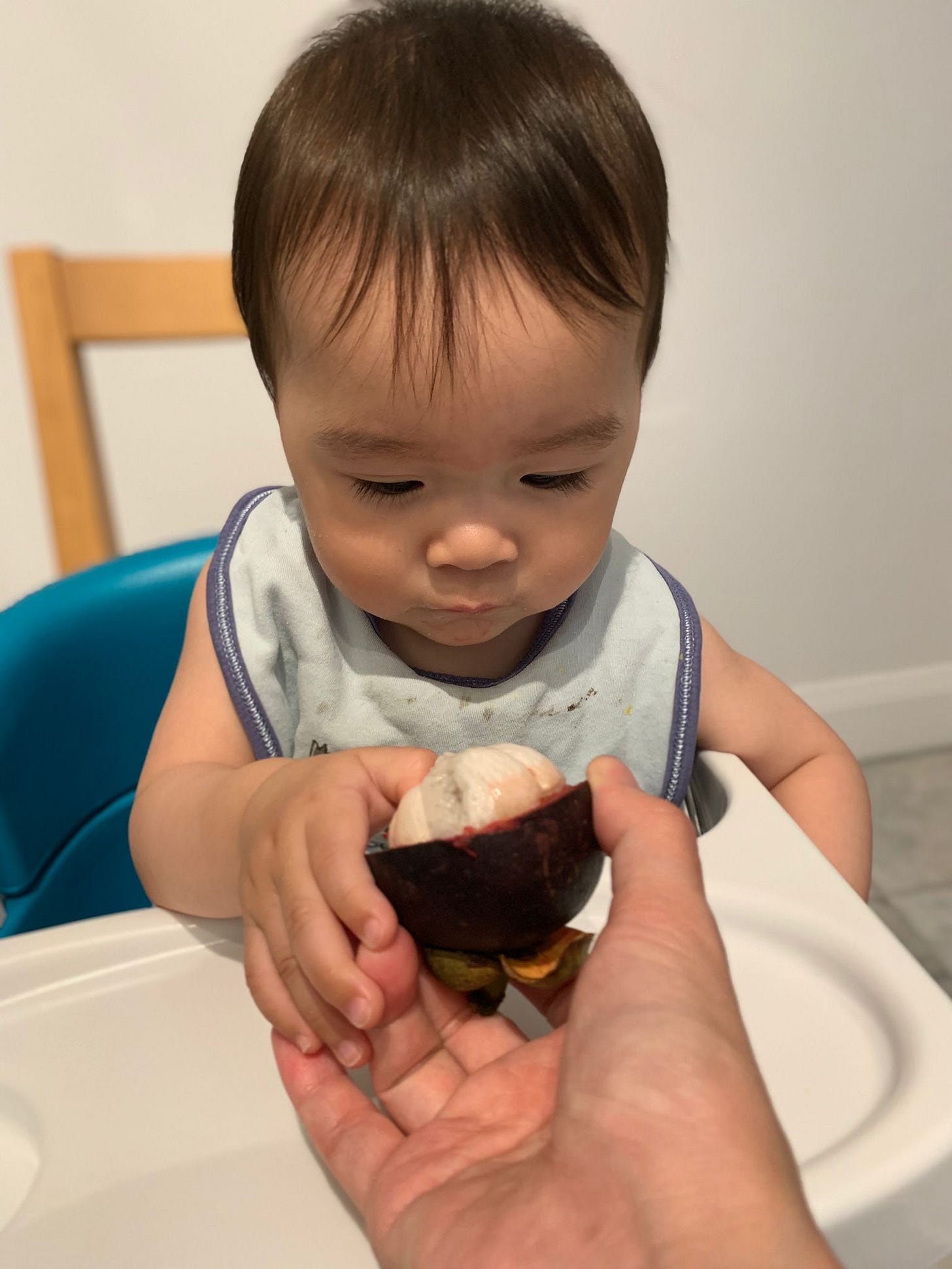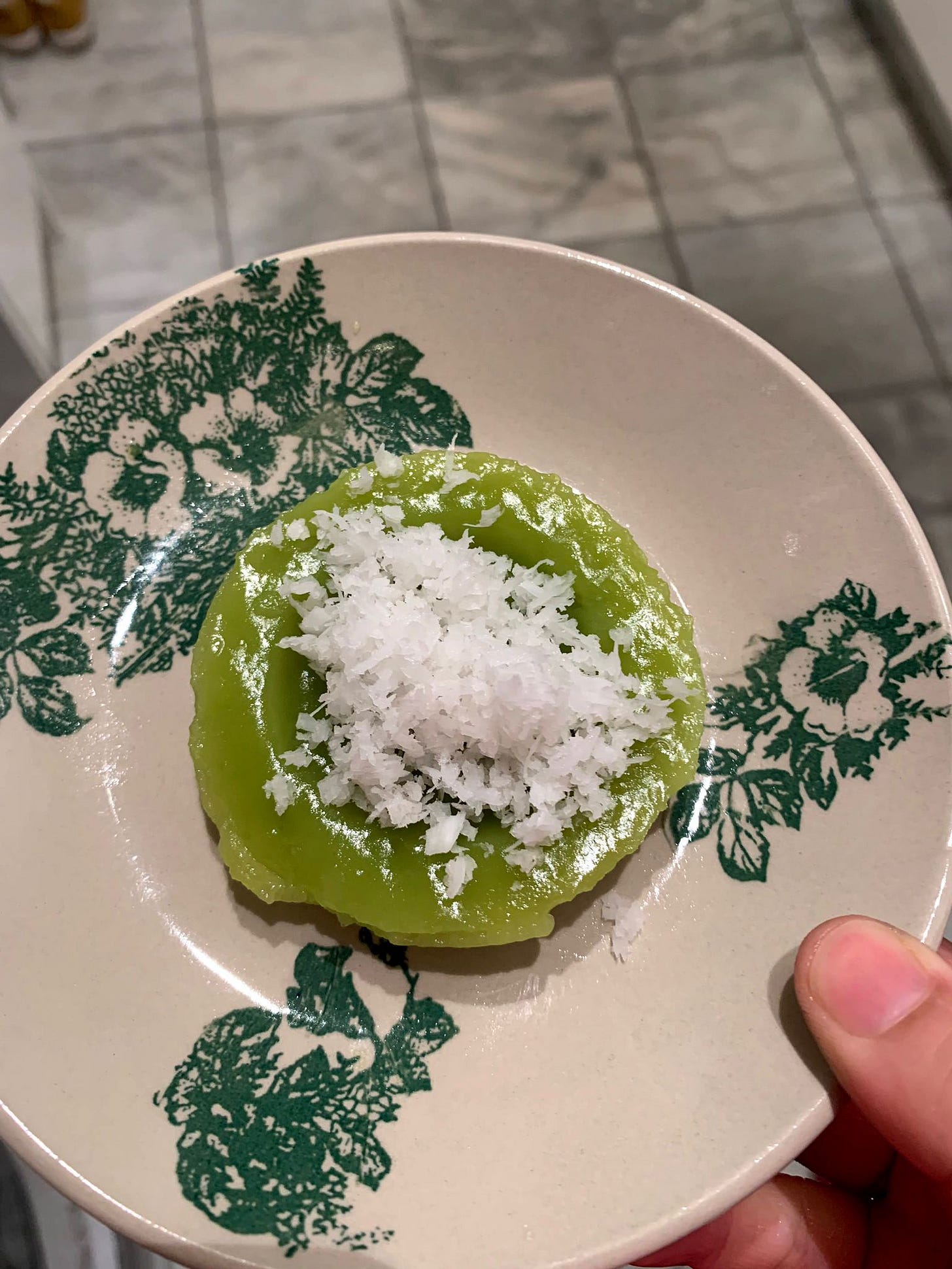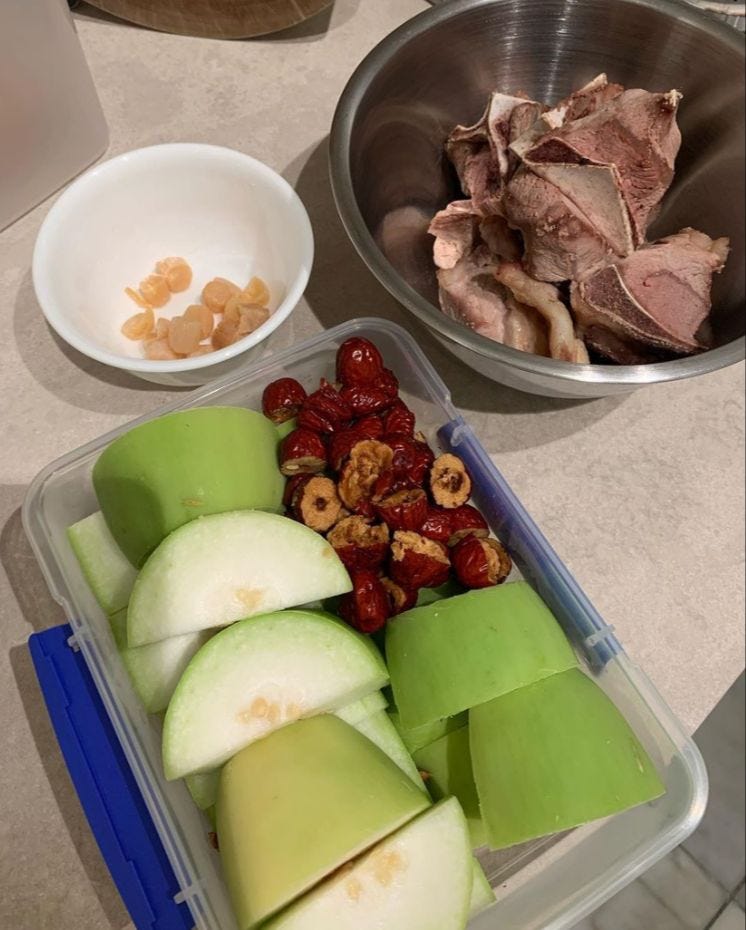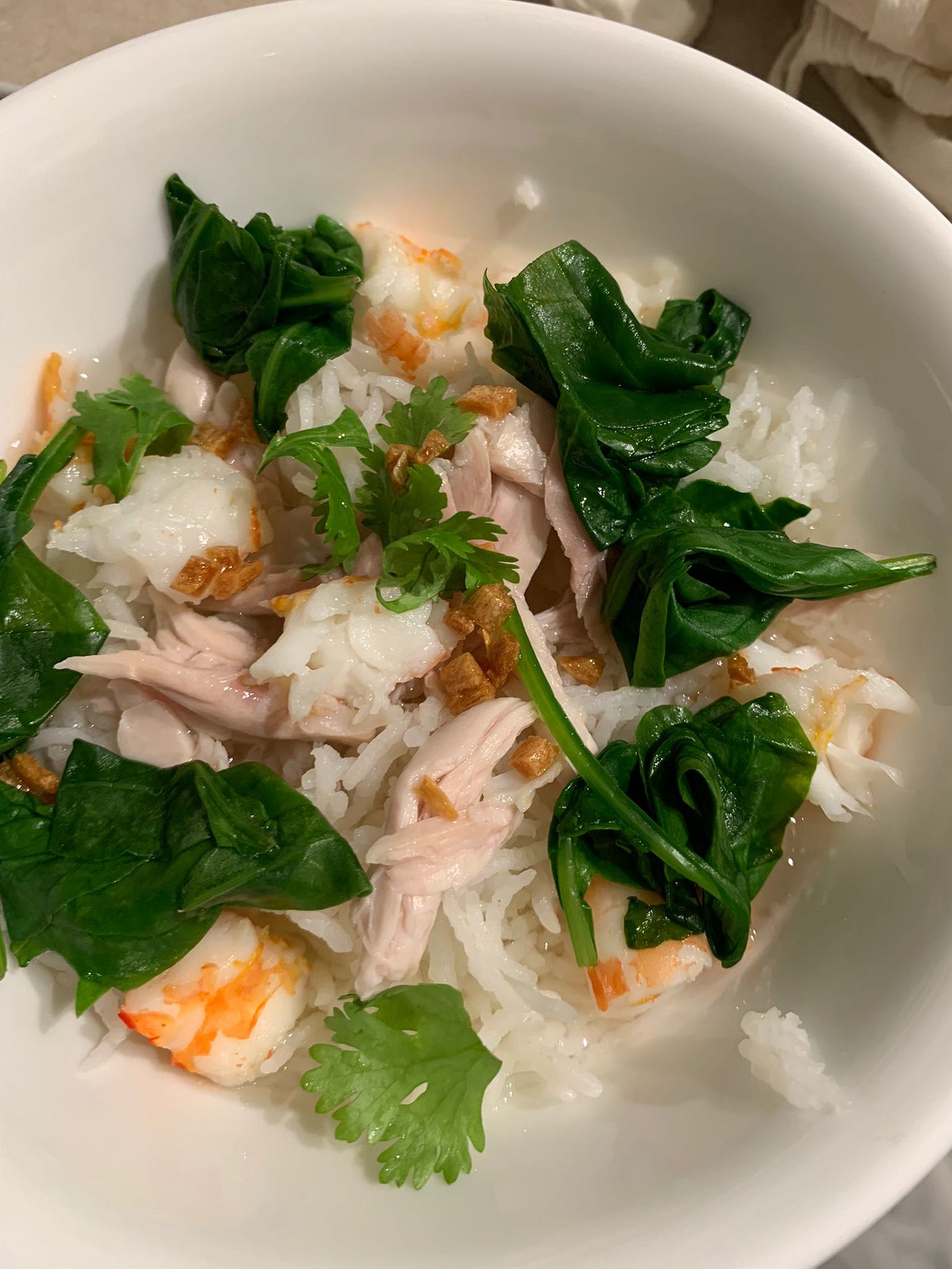As some of you may be aware, Singapore Noodles kicked off its membership late last year, and since then, I’ve been lucky to have had conversations and real-life interactions with some of our members. So many of them have such interesting lives and great perspectives on Singaporean food culture that I’m going to be sharing member spotlights via this newsletter throughout 2022. I hope that you’ll enjoy reading about why they cook food from their heritage, and what it means to them.
In this newsletter, I speak with Jackie Ngui (@pyjamajack) who is based in Sydney, Australia.
Hi Jackie! Can you tell me a little about yourself and your heritage please?
I am Malaysian-Chinese but moved to Sydney with my family when I was 5 years old. On reading this, most people must think that I am very Westernised, but I still speak fluent Hakka and Cantonese. My career has been in IT but, since becoming a mother, I only work part-time to devote more of my life to raising my 3-year-old son. Any spare time goes to my passion which is cooking!
What role did your mother play in sparking this love for cooking?
Growing up, I was always asking her questions about what she was doing in the kitchen, following her around shopping, and learning how to select the best ingredients. School holidays were spent reading her small collection of cookbooks over and over again, yet I never once realised that I was interested in cooking.
As a stay-at-home mum, she cooked all our meals and didn't take shortcuts. Everything was always done properly. That is not to say our food was fancy or complicated, it was just proper home cooking and not frozen meals or powder sachets etc.
I never realised how lucky we were until a high school friend told me that their mother's cooking was terrible. I was shocked! "I thought all mums were the best cooks?" I felt so sorry for my friend and, from that day, aspired to be a good cook too so that if I had children, they would also grow up saying "my mum's food is the best".
I'm proud to say that despite juggling work and a child, I still cook with the same principles, as her approach has been ingrained in me and I'm so grateful for it.
I love that! I also recall you saying that you wanted to be vegetarian when you were a child!
Ah yes, I was definitely not a meat lover as a child, but I loved vegetables! I still remember standing next to my mum at the kitchen sink and casually asking "Mum, can I be a vegetarian?". She paused from her cooking and turned to me to say in Hakka, "Definitely not! Look how skinny you are – if you stop eating meat, you'll disappear!" That was the end of it, I was too young to question her response!
Although I've grown to love meat too, I still eat a lot more vegetables and very little meat at all. When you wrote about soy-braised chicken with potatoes and carrots on Singapore Noodles, I had a little giggle because in my household there would be a ton of potatoes, more than the chicken for sure!
Do you feel that moving overseas has caused your family to hold on more tightly to traditions and culture?
I once read that people who migrated to another country would hold onto cultures and traditions which, in their country of origin, would become slowly forgotten or evolve/ modernise. It's a way to remain connected, and I definitely feel that applies to my family.
My father was constantly reminding us of where we came from and who we are. We had to speak Hakka at home to our parents which we initially begrudged but I'm now so grateful for it. We also practice traditions that are considered old-school such as having red eggs on our birthdays. Upon hearing it for the first time, my Hong Kong friend at university said, "Wow! I haven't had those for my birthday since I was 5 years old!".
Having come here as adults, Malaysian Chinese food is what my parents grew up eating and it's what they knew how to cook. Back in those days, we didn't have the internet to access thousands of recipes, so learning to cook a new cuisine wasn't as accessible as it is now. But eating food from home and eating it the way we always have is definitely a way we stay connected to our culture. It's why we eat Malaysian food when we go out, not just because we miss the food but because it is a taste of home.
How did you get into cooking Singaporean or Malaysian food?
I didn't cook much when I lived at home, but I did learn a few of my mum's homestyle dishes. When I first lived with my husband, I spent a great deal of time learning to cook Thai food, as he had not lived in Australia long and was constantly homesick for the food. I love to cook, so it was great to learn new things, but at one point I stopped and realised that I probably knew how to cook more Thai dishes than Malaysian, so I started to learn more Malaysian/ Malaysian Chinese foods.
The tables really turned when my son started eating solid foods - since then I have really focused on cooking the foods from my culture because I want him to connect to it. As a child born in Australia to parents from different backgrounds, I feel that food is such an important way for him to build his cultural identity.
Maybe it will help him to feel more at home when we visit relatives in Malaysia because the foods will be familiar to him. As a baby, I would buy a few mangosteens and rambutans in summer so that he could try them amongst other fruits. I also put more effort into making special festival foods for occasions such as Chinese New Year so that he'll have the same associations. And when he was old enough to try desserts, I intentionally avoided any Western foods such as chocolate, and made sweet soups (tong sui), pandan-infused kuehs, and chiffon cake instead. Hopefully all these things will help him build a Southeast Asian palate and a strong cultural identity.
Do you think it is realistic or possible for working adults to cook their own meals at home, for themselves or their children? How do you juggle work with cooking and caring for your child?
It can be hard to find the motivation to cook after a long day of work or caring for a child, but there are definitely ways to make it easier.
One thing about cooking with a child is that you no longer have uninterrupted cooking time. I've learnt to be much smarter and organised in the kitchen to get around it. When making rice, I pop eggs in towards the end for perfectly boiled eggs which can be eaten that day or perhaps marinated for ramen eggs.
Breaking up tasks makes them more achievable too. I measure out my flour for baking/pancakes into jars ahead of time so that when I have time to bake, I can get straight into it! Pancakes are cooked in a batch and the leftovers frozen. I steam them straight from the freezer and they're as good as fresh - I like to put a small steamer rack on a plate and put the pancakes on top of that so that they don't get soggy. Prawns bought in batches are deveined, and some peeled before freezing, as they can be cooked from frozen – one of my favourite discoveries!
Braises and soups are great to make on a Sunday, because they keep well for a couple of days and make for easy weeknight meals. The one problem with making Cantonese soups is that they are a lot of work, with steps like parboiling the meat/bones, pitting the jujubes etc. I make soup every Sunday and put it into a thermal pot to cook overnight but I parboil the soup bones on Saturday and sometimes will do double the amount and put half in the freezer for the next week. Winter melon and lotus root also freeze well so I'll peel, deseed and cut all of it, and freeze some for future soups.
Hainanese chicken is one of the best Sunday meals because it is so versatile! I'll use the leftover stock for noodle soups or congee. Last week, I used the Hainanese chicken stock to make a kind of "pao fan" (soup rice), this was my son's bowl with less soup as it would be too hot for him to eat right away otherwise, but so easy to put together with pre-prepped frozen prawns and everyone loves it.
Steamed dishes are great for weeknights because there's little clean up required and the cooking is hands off so whilst one dish is steaming you can prep something else for the same meal or for the next day.
Also remember that it doesn't need to be complex, some days an omelette and some vegetables are all I need. Once you get into a rhythm, it is much easier! 💪🏻





